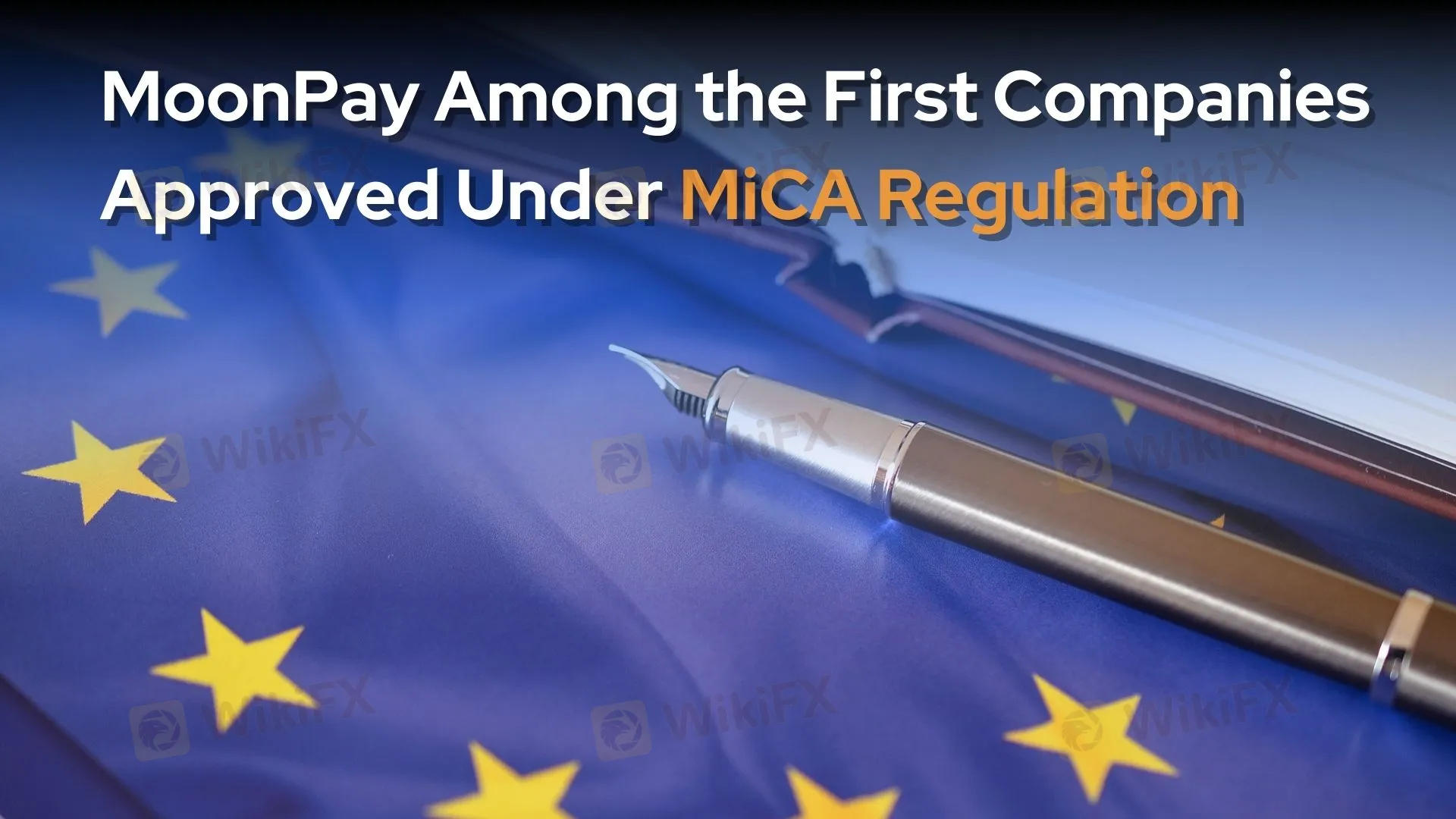简体中文
繁體中文
English
Pусский
日本語
ภาษาไทย
Tiếng Việt
Bahasa Indonesia
Español
हिन्दी
Filippiiniläinen
Français
Deutsch
Português
Türkçe
한국어
العربية
MoonPay Among the First Companies Approved Under MiCA Regulation
Abstract:MoonPay receives MiCA license in the Netherlands, enabling EU operations under stricter regulations.

In a December 30 announcement, MoonPay stated that the Netherlands Authority for the Financial Markets (AFM) had issued it a license under the EUs Markets in Crypto-Assets Regulation (MiCA), allowing the cryptocurrency company to operate as a licensed crypto business in the Netherlands.
MoonPay is a fintech company that builds payment infrastructure for cryptocurrency. Its range of inbound and outbound products provides seamless conversion between fiat and crypto using all major payment methods, including debit and credit cards, local bank transfers, Apple Pay, Google Pay, and Samsung Pay. According to its introduction, MoonPay serves over 20 million users across 180 countries, supporting 121 tokens.
What is MiCA?
MiCA (Markets in Crypto-Assets Regulation) is the EUs first comprehensive regulation designed to govern the crypto-assets market. It aims to foster cryptocurrency innovation, provide a regulatory framework to mitigate risks associated with digital assets, and ensure financial stability. MiCA requires crypto service providers to obtain authorization and registration from financial authorities in EU member states.
How MiCA Impacts the Crypto Market
MiCA introduces a unified regulatory framework for crypto businesses, reducing policy uncertainties. It offers clear guidelines for market standardization while imposing stricter requirements on individual investors and crypto companies.
For individual investors, MiCA creates a safer market environment by requiring issuers to disclose comprehensive whitepapers and financial information. This transparency allows investors to better understand project risks and make more informed decisions. Patrick Hansen, European Policy Lead at Circle, noted, “MiCA creates a more transparent and credible market environment, attracting more mainstream investment.”
For businesses, MiCAs “EU passport mechanism” is a key highlight. Through this mechanism, companies need only obtain a MiCA license in one member state to legally operate across the entire EU economic area, significantly simplifying cross-border compliance complexities.
However, MiCA also imposes stringent compliance requirements, including establishing a legal entity, meeting minimum capital requirements, and implementing Anti-Money Laundering (AML) and Know Your Customer (KYC) procedures. These obligations may increase operational costs, posing challenges particularly for startups and small to medium-sized enterprises.
Disclaimer:
The views in this article only represent the author's personal views, and do not constitute investment advice on this platform. This platform does not guarantee the accuracy, completeness and timeliness of the information in the article, and will not be liable for any loss caused by the use of or reliance on the information in the article.
Read more

Crypto News: $1 Trillion Managed Funds Fail Key Compliance Tests
ASIC finds $1 trillion in managed funds failing compliance, risking investor protection with weak oversight on design, dispute resolution, and reporting.

Robinhood Launches Free Desktop Trading Platform for UK Investors
Robinhood launches its free desktop trading platform, Robinhood Legend, in the UK, offering advanced features for active investors, including 6,000 US stocks with no commissions.

Crypto Never Sleeps with Hantec Markets' 24/7 Trading
Hantec Markets has introduced round-the-clock cryptocurrency contracts for difference (CFD) trading, providing its clients with uninterrupted access to digital asset markets.

Hong Kong Approves Stablecoin Law to Boost Digital Finance
Hong Kong passes a stablecoin bill, launching a licensing regime for fiat-backed tokens to enhance digital finance and investor protection.
WikiFX Broker
Latest News
How much money will you earn by investing in Vantage Broker?
IronFX vs Exness Review 2025: Comprehensive Broker Comparison
Fraudsters Are Targeting Interactive Brokers' Users with Lookalike Emails
Interactive Brokers: Global Office Visits and Licensing Details
Top Tips to Choose the Best Forex Broker in 2025
SEBI Notifies New F&O Rules for Investors - New Derivative Trading Limits & More Amendments
U.S. Jobs Data Released: A Potential Boost for Gold Prices
SkyLine Guide 2025 Malaysia: 100 Esteemed Judges Successfully Assembled
Everything you need to know about ADSS
Vantage Markets Review 2025: Trusted Forex and CFD Trading Since 2009
Currency Calculator


